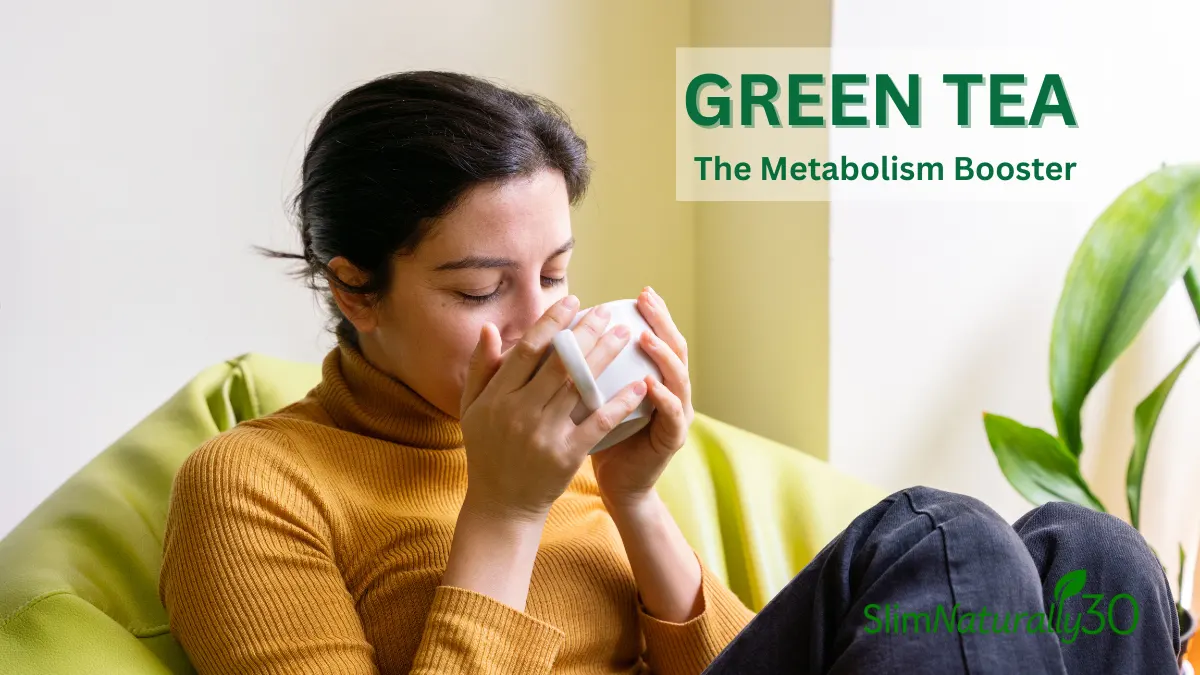
One night, out of desperation more than belief, I brewed a cup of chamomile with spearmint. I didn't expect much.
"I just needed something warm. What I got was… quiet."
I didn't fall asleep instantly. But something shifted. Like my body exhaled just enough to say, "Okay… we're safe now."
Tea Doesn't "Fix" Hormones—It Calms the System They Live In

Can Tea Really Help Balance Hormones?
Let's get one thing clear: Tea isn't magic. It won't "balance your estrogen" overnight or reset your cortisol in three sips.
But what it can do is help create the conditions where your body begins to regulate itself again.
Here's how:
- Spearmint tea has been shown to reduce excess androgens in women, which may support clearer skin and better cycles.
- Green tea contains catechins that aid metabolism and reduce oxidative stress—both hormone helpers.
- Licorice root tea (used short term) can modulate cortisol levels and support adrenal recovery.
- Rooibos is caffeine-free and rich in antioxidants that support liver detox—key in estrogen balance.
- Tulsi (Holy Basil) is a gentle adaptogen—helping your body adapt to daily stress signals without overcompensating.
What's common among them? None of them force a change. They create a quieter, steadier internal environment. And that's where hormone healing begins.
How I Made Tea Part of My Hormone Routine (Without Turning Into a Wellness Blogger)
I didn't build a fancy tea altar or collect mason jars of exotic herbs. I started simple:
- Morning: Green tea with lemon. Gentle on my gut, easier on cortisol than coffee.
- Afternoon (around 3PM): Tulsi or spearmint tea. Helped with that wired-but-tired dip.
- Evening: Chamomile with licorice root. Soothing and subtly grounding before sleep.
Sometimes I skipped a cup. Sometimes I forgot. But the key wasn't perfection—it was rhythm.
"When I sipped tea at the same time each day, it felt like telling my hormones, 'You can rely on this. You're safe to unwind now.'"
There was no instant transformation. But I noticed small things: my skin stayed calmer around ovulation, I stopped waking up at 3AM, and I wasn't as snappy during PMS.
And over time, it stopped being "just tea." It became a signal—of calm, of care, of gentle change.
The Add-On That Made My Tea Routine Even More Grounding
After a few weeks of consistent tea habits, I wanted to nudge things a little further—but gently. Not with pills. Not with another protocol. Just something that could ride along with the rhythm I'd built.
Ikaria Juice came to me through a friend. She described it as "metabolism support without the crash." I wasn't sold—but I read the label. Herbal, anti-inflammatory, adaptogen-based.
I started adding a half dose to my morning tea. The combo felt seamless—no jitters, no clash. Just warmth with a little fire under it.
- I didn't snack mindlessly mid-morning anymore.
- My energy held steady through meetings and errands.
- And I stopped waking up bloated—even during luteal phase.
It wasn't magic. But it felt like I had a quiet teammate in the background.
Tea Didn't Heal My Hormones—But It Taught Me This
When I first started, I was desperate for results. I wanted better sleep, clearer skin, and PMS that didn't make me want to hide in a closet.
And while tea didn't fix all of that overnight, it gave me something more powerful:
It gave me a rhythm.
Tea became the moment I paused. Checked in. Noticed if I was anxious, or tired, or reaching for control.
Over time, I stopped chasing "hormone hacks." I started chasing peace.
That shift? That's what helped everything else shift, too. From the inside out.
FAQ – What Women Ask About Tea and Hormones
Can tea really affect hormone balance?
Not directly—but indirectly, yes. Herbal teas support the nervous system, digestion, and stress response—all of which influence hormone rhythm.
Is there estrogen in tea?
Some teas, like spearmint and licorice root, contain plant compounds (phytoestrogens) that may mildly influence estrogen receptors. But their effect is subtle and non-disruptive.
How long before I notice results?
Everyone is different. Some women feel calmer or sleep better within days. For others, it takes a few weeks of consistent use to notice changes like clearer skin or smoother cycles.
Is Ikaria Juice a tea?
No—it's a supplement, but it blends well with tea. It contains polyphenols, adaptogens, and gut support ingredients that can complement a tea-based wellness routine.







